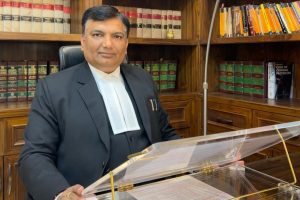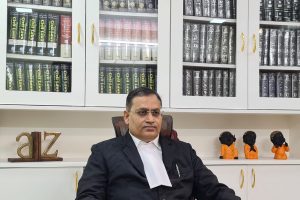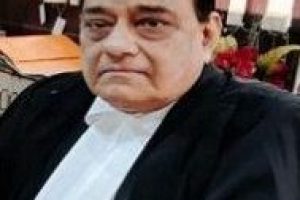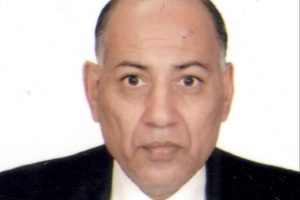Is the Constitution (Application to Jammu and Kashmir) Order, 2019 abhorrent to the provisions of Indian Constitution?
On 5 August 2019, the Hon’ble President of India Sh. Ram Nath Kovind issued a constitutional order i.e.the Constitution (Application to Jammu and Kashmir) Order, 2019, hereinafter referred as Order, 2019 superseding the Constitution (Application to Jammu and Kashmir) Order,1954, hereinafter referred as Order,1954 and making all the provisions of the Indian constitution applicable to Jammu and Kashmir. It is pertinent to note here that the said Order, 2019 has in no case abrogated the Article 370 as the said Order, 2019 has been issued in exercise of powers conferred under Article 370(1) not under Article 370(3). The issuance of the said Order, 2019 brings a lot of happiness on the faces of the people of the country and everyone started eulogising the Narender Modi led Government of India. On the other hand, there is a group of people who is opposing and lambasting the Namo government for such a step being unconstitutional and hence illegal, which poses an important question that is, whether the Order, 2019 is made within the constitutional limits?
Before parting with this issue, one must understand the historical background of Article 370 as what was the need of the hour to insert Article 370 in the Constitution of India. On October 26, 1947, the princely state of Jammu and Kashmir accedes to India after execution of a legal document called as Instrument of Accession, hereinafter referred as IoA, by Maharaja Hari Singh, then ruler of J&K. The IoA gave India’s parliament the power to legislate in respect of J&K only on the matters of defence, external affairs and communication and matters ancillary thereto. Clause 7 of the IoA declared that the state could not be compelled to accept any future Constitution of India. The state was within its rights to draft its own Constitution and to decide for itself what additional powers would extend to the Central government. In view of this, the representatives to the constituent assembly of J&K requested that only those provisions of the Indian Constitution that correspond to the original IoA should be applied to the state. Accordingly, the Article 370 was incorporated into the Indian Constitution, which stipulated that the other Articles of the Constitution that gave powers to the Central Government would be applied to Jammu and Kashmir only with the concurrence of the state’s constituent assembly or government of the state. This was a “temporary provision” as its applicability was intended to last till the formulation and adoption of the state’s constitution. However, the state’s constituent assembly dissolved itself on 25 January, 1957 without recommending either abrogation or amendment of the Article 370. Thus, the Article 370 has become a permanent feature of the Indian Constitution and cannot be abrogated, as also confirmed by various rulings of Supreme Court of India, see State bank of India v. Santosh Gupta, Law Finder Doc Id #813963, and the High Court of Jammu and Kashmir.
We are all not oblivious of the situation that since June 20, 2018, the state of Jammu and Kashmir is under the Presidential rule after dissolution of the state assembly, which also raises a question that whether after dissolution of state assembly, the Order,2019 can be made? The answer to this question lies in the Article 370(1) itself. Article 370(1) enumerates four fundamental aspects, firstly, Parliament has power to make laws for the state of J&K only to those matters which are correspond to matters specified in the IoA, which are defence, external affairs and communication and matters ancillary thereto, secondly , Parliament has power to make laws of such other matters in the Union List and Concurrent List specified by the President in an order, with the concurrence of the Government of the state only, thirdly, the provisions of Article 1, Article 268 and Article 370 shall apply to J&K State, which cannot be abrogated except under the purview of Article 370(3), fourthly, other provisions of the Constitution of India shall apply to the state of J&K, subject to exceptions and modifications as specified by the President in an Order, with the concurrence of the Government of J&K only. From the bare reading of the Article 370(1), it is apparent that the provisions of Article 1, Article 268 and Article 370 shall in every case, except in the case of abrogation or cessation under Article 370(3), apply to J&K and secondly, the president can, only with the concurrence of the J&K government, make an order to the effect of applicability of the provisions of Constitution of India (except Article 1, 268 and 370), which implies that in no case the President can make an order without the concurrence of the Government of J&K in view of Article 370(1)(c) which makes the Article 370 applicable to J&K in all cases, except in the case of abrogation under Article 370(3), which means that if the government of J&K gives its nod or concurrence to the order made by President prior to its promulgation, only in that case the order will be binding upon the said state and not otherwise, which depicts that in present scenario, the promulgation of Order,2019 is purely unconstitutional and repugnant to the basic objective and soul of the IoA and Article 370 as the said Order, 2019 has been made without the recommendation or concurrence of the state government of J&K.
Now, if we closely scrutinise the said Order, 2019, it will transpire to us that the Order, 2019 has been made with the concurrence of the government of the said state, notwithstanding the fact that at present, there is no government exist in the said state and the state is under the President’s rule, which makes only one possibility, i.e., the Order, 2019 has been made with the concurrence of the incumbent Governor of J&K. But, whether the concurrence of the Governor means the concurrence of the said state government as per Article 370. The answer to this question is a big NO. For this, we have to read Article 370 with the Order, 1954. The Order,1954 explicitly states the government of the state of J&K includes Governor of J&K acting on the advice of Council of Ministers, which implies that the Governor alone without advice of Council of Ministers cannot accord his concurrence. Resultantly, in the present situation when the said state in under President’s rule, the governor cannot accord his concurrence for the making of order under Article 370, which in itself makes the Order, 2019 illegal and unconstitutional and preposterous one.
Secondly, the said Order, 2019 has indirectly amended Article 370 which transgressed the limits of the Constitution of India. The said Order, 2019 has amended Article 370(3) by substituting the expression “Constituent Assembly” with “Legislative Assembly of the State”, which is also abhorrent to the constitutional provisions as the President cannot amend the constitution in any case since such power only vests with the Parliament (Article 368) and even when Parliament is not in session, then also, the President cannot amend the Constitution by promulgating Ordinance. Resultantly, such an amendment in Article 370(3) ought not to have been done without being tabled, discussed and debated in the Parliament of India and after the concurrence by the state government of J&K.
The Order, 2019 does not repeal or revoke Article 370 by using Article 370(3). However, it makes Article 370 excessively weak and brings a monumental change in its strength and made the Article 35-A completely ineffective. Such a step taken by the President is nothing but a severe blow on the constitutional machinery and democracy of the India while keeping at stake the fraternity, equality and justice, which perturbed the residents of J&K and their future seem to have been in shambles to them. The Order, 2019 may be challenged soon and the interpretation given by the Supreme Court shall prevail at the end.
© Chawla Publications (P) Ltd.































